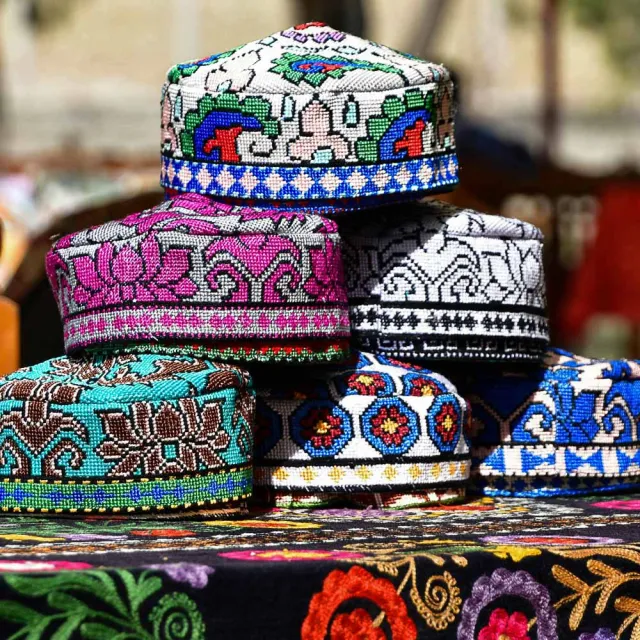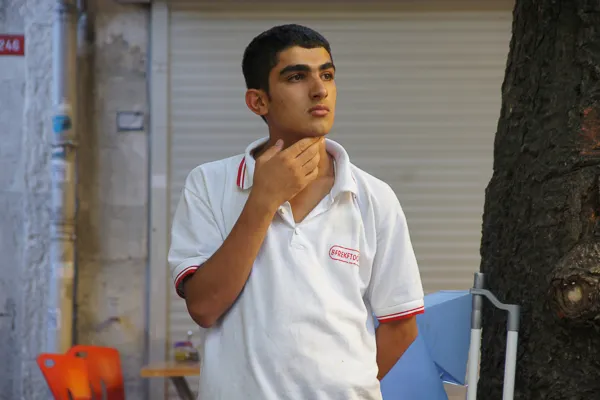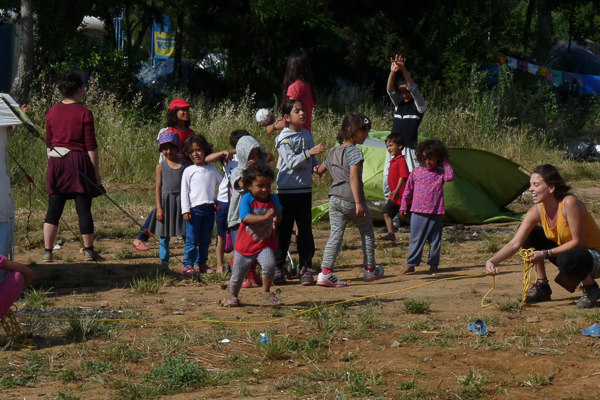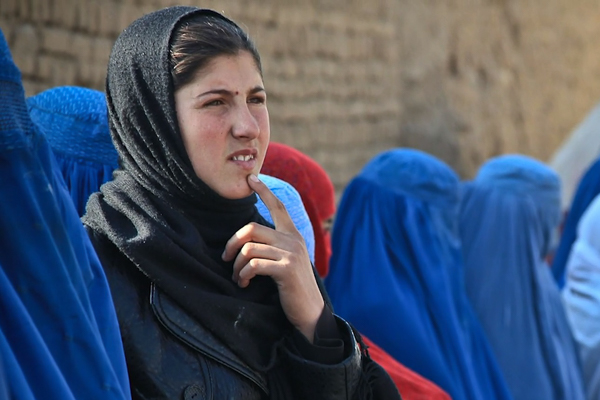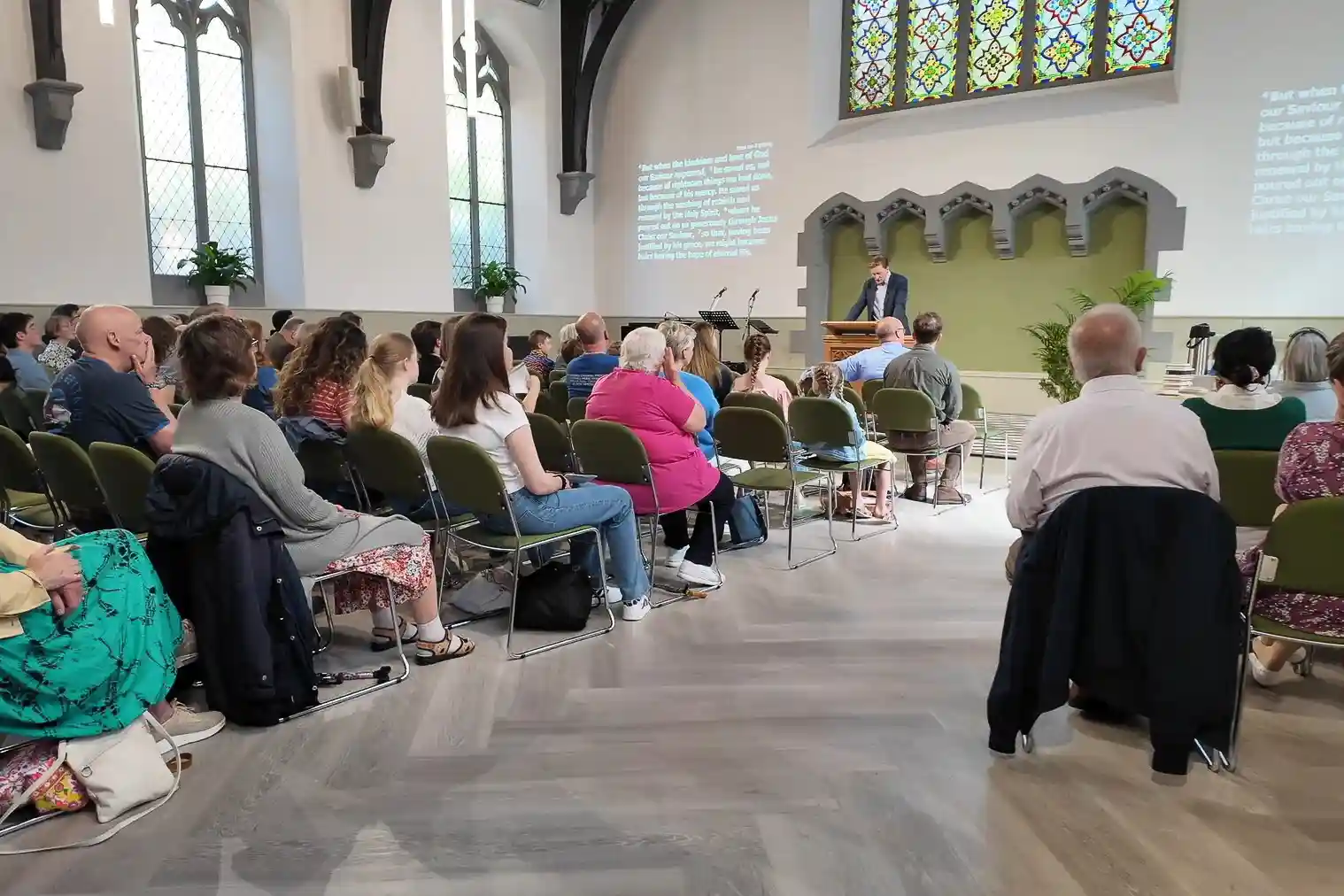The One With the Beef Biryani

“When a stranger sojourns with you in your land, you shall not do him wrong. You shall treat the stranger who sojourns with you as the native among you, and you shall love him as yourself, for you were strangers in the land of Egypt: I am the Lord your God.”
(Leviticus 19:33-34)
Let me set the scene.
My friend invited me over to her house for a casual dinner at 7:00 on Thursday evening. I had never been to her house for dinner before, and this was the first time that I had gone to one of my South Asian Muslim friends’ homes for dinner.
Because I can’t arrive anywhere on time to save my life and because the unspoken polite American culture is to arrive slightly after the official party start time, I arrived at 7:10 p.m., hoping that my lateness wouldn’t be a problem.
My friend opened the door in her bathrobe. “You’re early,” she said, stepping back slightly.
“You said that it started at 7:00, right?” I clarified, hesitating at the door.
She confirmed my suspicions with a smile and a chuckle. “Yes, 7:00 Bengali time.”
Despite my attempts at apologizing and excusing myself to come back at a better time, she ushered me inside, directed me to take off my shoes, and to make myself comfortable in the living room where her son was watching cricket on television.
My friend hustled back to the kitchen, where she continued preparing the cooking for the evening. Since I have hardly a clue what goes on in a game of cricket, much less when the broadcasting is in a different language all together, I followed her into the kitchen, asking if I could help.
She shook her head at me. “No, you should go in the living room and rest.”
“I don’t need to rest,” I informed her, “I want to help you with dinner and talk with you.”
“You are the guest. Go to the living room and watch cricket.”
After watching the cricket game for an hour and pretending like I understood what was going on, the other guests began to arrive. The men wouldn’t look at me or shake my hand, but the women greeted my shyly, pressing my hand or at least nodding and smiling in my direction.
Plates piled high with food were toted into the living room, heaps of vegetable samosas, chicken kebabs, chickpea salad, lentils and roti, and curried eggs. The female relatives and my friend prepared plates of food and distributed them to the men first, then to me and the other guests. I offered to help again, but they told me to sit.
After I stuffed myself with the delicious food, surreptitiously avoiding the meat products because of my vegetarian eating habits, I sat back and basked in the sleepy, post-dinner conversation over spiced, milky tea. Granted, most of the conversation was in my friend’s heart language, of which I know about 20 words, so most of this conversation-basking on my part was done with a vague, slightly confused yet friendly smile plastered on my face.
Since my friend doubled as my language teacher, one of the other guests would often ask me a question in Bangla, to test my progress and my friend’s teaching success. Without fail, I pronounced something wrong or dropped an important word ending, which everyone else found hilarious. You’re welcome.
As the conversation lulled, I glanced at the clock, noted that it was about 9:30 p.m., and drew the conclusion that the party would probably be ending soon. This was convenient, considering that I had work the next day and lived about an hour away from my friend by train.
Then, my friend stood up again and announced that she would be making beef biriyani for dinner, a traditional rice and meat dish, and that it would be ready in about 30 minutes. Everyone in the room nodded appreciatively, but my well-made plans came to a screeching halt.
I had been duped.
The generous spread of food hadn’t been dinner; those had been the appetizers. I had completely eaten my fill and now I was expected to find room in my stomach for a gigantic pile of flamingly spicy rice and meat. (Meat! I silently bade farewell to my vegetarian ways, as to not refuse the food and reject my friend’s hospitality.)
The joy of being welcomed
When the dinner party gracefully ended after the biryani course, I bade everyone goodbye and thanked my friend for hosting me. She took my hands in hers and said, “Thank you for coming over to my home. It makes me very happy. You bring me honor.”
Me? Bring her honor? Did she miss the part where I got to her house stupid early? Did she notice when I dropped an entire handful of biryani into my lap because of my inability to eat with my right hand, thanks to being left-handed? Was she aware of how painfully out of place I had felt the entire night, playing nervously with the hem of my jama and trying to mentally decipher what in the world the guests were talking about, a soft, vague smile plastered on my face?
Apparently this didn’t matter in her perspective of hospitality. She was honored by my presence, clumsy and clueless as I was, and I had the joy of being welcomed into her home and her family. Praise the Lord.
When I moved to the field, I inwardly wrestled with the hope that I could center my ministry around hospitality and a deep-seated fear that my new friends would have nothing in common with me. I worried that they wouldn’t accept me into their homes or come to mine.
We all come to the table with our own cultures, backgrounds, faiths, and languages. How can you break bread together when you don’t even know how to ask them to pass the bread to you?
The concept of hospitality is often discussed in the Christian faith, and as we ponder and practice the mandate of “loving foreigners” (Deuteronomy 10:18-19) and showing “hospitality to strangers” (Hebrews 13:2), Jesus promises that it is a valuable, necessary practice. But what does that look like in reality?
The art of hospitality, I’m learning, is much more than any perfectly-curated Pottery Barn dining room or a delicious feast of a curried fattened calf and vegetables.
Hospitality is the practice of welcoming in another human being and connecting with them on the baseline of their humanity—the need for food and for shelter.
You don’t need someone’s entire life story to know that their bodies crave nourishment and comfort and you don’t even need to know the vocabulary in their heart language to communicate these things.
During the past year, I’ve been humbled and encouraged to learn that my Muslim, South Asian students are far better at hospitality that I am. My friends have opened their arms and welcomed me in, teaching me that I don’t need to know all of the vocabulary or cultural nuances to break naan with them.
They fret over my vegetarianism and lack of a husband, so they welcome me into their homes, lovingly cook yellow daal and vegetable curries, and ask me about my job and my family back home.
I have learned to forever have snacks and tea on hand for friends who drop into the community center where we work, and to always be ready to talk about a stressful parent-teacher conference or a fiasco with in-laws visiting from South Asia.
The door is open. You are welcomed.
Hospitality is a messy, unorganized, beautiful snapshot of heaven, where we’ll all be welcomed together at the throne of our Creator to worship Him for eternity. Until then, we Christians practice welcoming others to that idea because we want them to be welcomed with us there too.
So we navigate the awkward, beautiful, confusing dinners, breathe deeply through cultural faux pas, and trust that Jesus will change hearts and bring more of His creation to His banquet table.
And I’ll work on figuring out Bengali time so I don’t show up an hour early to future dinner parties.
Ginny serves with MTW in Global Muslim Ministry.
